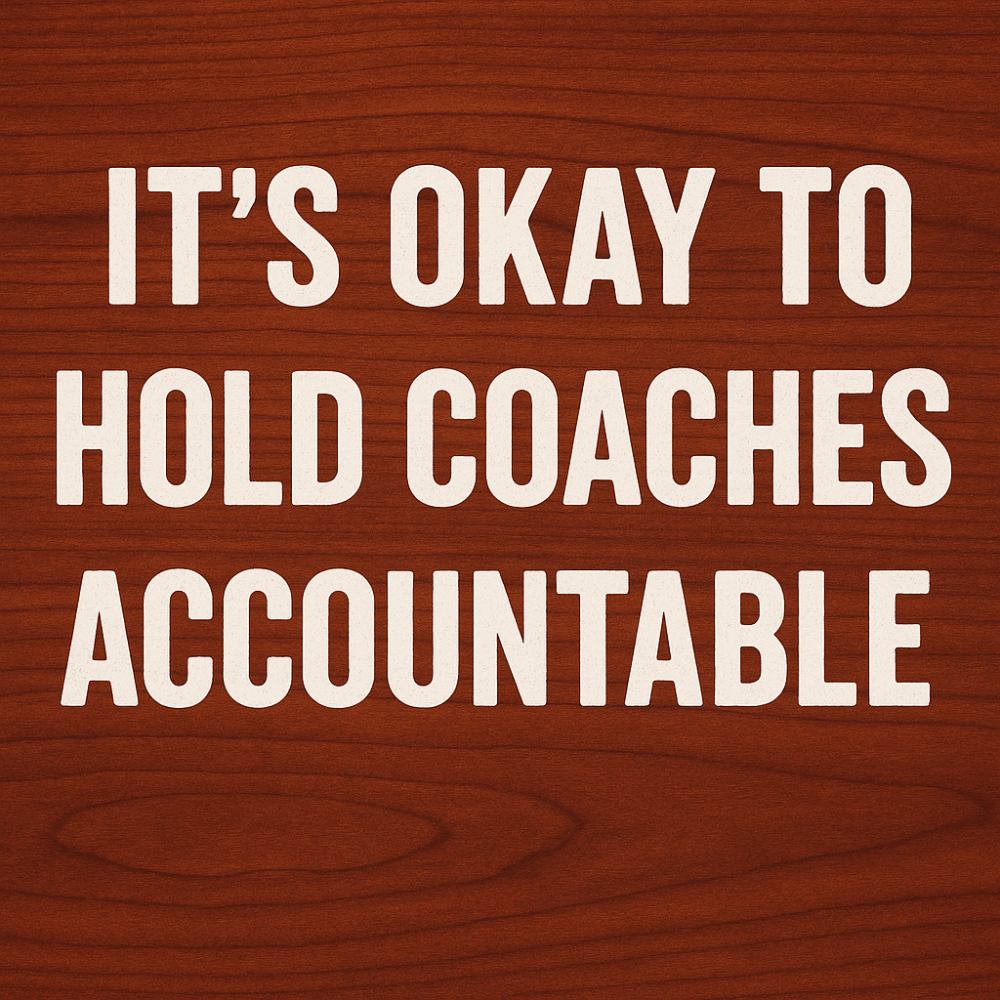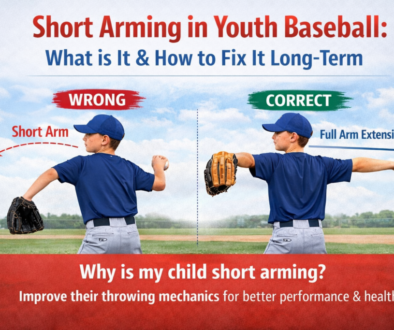It’s Okay to Hold Coaches Accountable — You’re Investing Too Much Not To
In the world of select baseball, parents are often asked to invest thousands of dollars per year—$2,500 to the organization, $100+ per month per player for coaching, and hundreds more for private lessons, travel, and gear. That kind of financial and emotional commitment isn’t just a donation; it’s a partnership. And like any partnership, accountability matters.
So why do so many parents feel uncomfortable holding coaches accountable when things go sideways?
Let’s be real: if your child’s coach no-shows private lessons multiple times, is slow to communicate, or doesn’t show up with energy and effort to match your family’s commitment, that’s a problem—and it’s okay to say something.
This Is a Business Transaction, Too
Let’s put it plainly: if you’re paying $100/month per player, and there are 10 players on a roster, that’s $1,000 a month going to the coach. That’s on top of your organizational dues and any private training. You wouldn’t accept this level of inconsistency from a math tutor, a music instructor, or a personal trainer. Why should it be any different in baseball?
When a coach flakes on lessons, cancels practices last-minute, or doesn’t give feedback, they’re not just wasting your time—they’re undermining your child’s development and your family’s investment.
Accountability Is Not Disrespect
Some parents hesitate to speak up because they don’t want to be labeled “that parent.” But there’s a difference between being a nuisance and advocating for your child. You’re not nitpicking a batting order. You’re asking for professionalism, consistency, and basic respect for your time and money.
A good coach will welcome accountability. The best coaches want feedback, value parent communication, and recognize they’re part of a bigger mission: growing young athletes through structure, discipline, and trust.
Know the Red Flags
Here are a few signs it might be time to speak up:
-
Repeated no-shows for private lessons or practices
-
Last-minute cancellations without follow-up or apology
-
Lack of communication about player development
-
Excuses instead of solutions
-
No clear plan or goals for your player
If these issues are happening regularly, they’re not isolated incidents—they’re a pattern.
How to Have the Conversation (Without Burning Bridges)
Here’s how to approach the issue respectfully and effectively:
-
Lead with clarity and facts – “Coach, I wanted to bring up that we’ve had three no-shows in a row for private lessons…”
-
Stay focused on your child’s development – Make it about progress, not punishment.
-
Be firm but respectful – “We value your time and expertise, but we need to know that our time is respected too.”
-
Give them a chance to correct it – Sometimes, coaches are stretched thin. A good one will own the mistake and fix it.
If the coach gets defensive, avoids the issue, or shifts blame, that tells you more than enough.
Your Voice Matters
Select baseball is not a one-way street. Parents, coaches, and players are a triangle—each side holds weight. And if one side isn’t pulling its weight, the whole structure weakens.
You’re not just a checkbook or a carpool driver. You’re a stakeholder. And if something’s not adding up, you have every right to ask questions, expect answers, and demand accountability.
Remember, your kid only gets one shot at this age, this level of play, and this season. Don’t let someone else’s lack of professionalism rob your athlete of the experience you’ve worked so hard to give them.
TL;DR:
If you’re paying thousands a year for select baseball and your coach is no-showing private lessons or failing to follow through, it’s not just frustrating—it’s unacceptable. Holding coaches accountable isn’t being dramatic—it’s being a responsible parent. Respect goes both ways.









